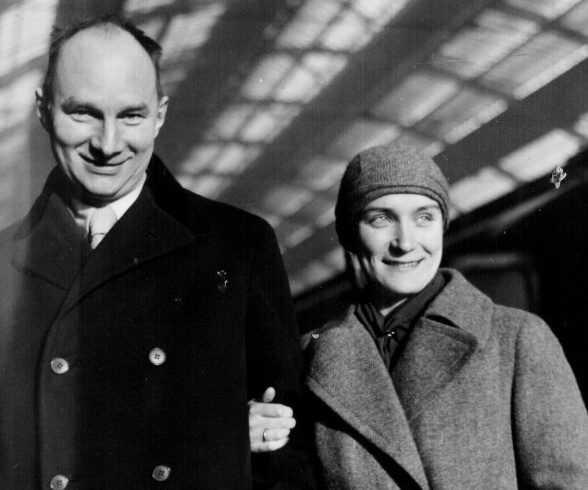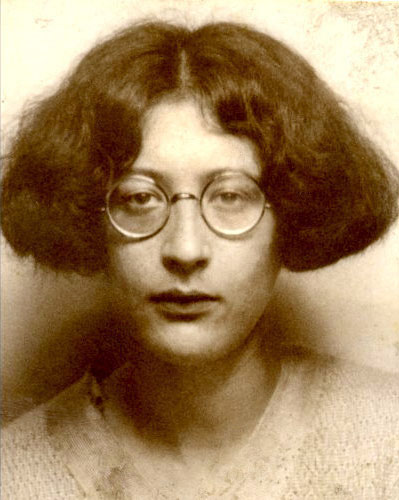Ordo-liberalism, starting justice and a universal basic inheritance: Alexander Rüstow

Alexander Rüstow, a towering figure in the German Ordoliberal school of thought, developed his ideas while navigating a tumultuous political period. As an opponent of the Nazi regime, he fled Germany in 1933 and spent his exile years as a professor of economic geography and demographics at Istanbul University before returning after World War II. In the cold war period, Rüstow tried to find a middle ground between the two competing world ideologies, captured in his 1949 book title, “Between Capitalism and Communism.” [1] His goal was to simultaneously preserve economic freedom and social equity. Alongside other ordoliberal thinkers such as Eucken, Röpke and Müller-Armack , Rüstow’s thought became the ideological basis for the Social Market Economy approach of Ludwig Erhard in postwar Germany. A central component of this “third way”—a term and approach he adopted from the sociologist Franz Oppenheimer—is a strong, state-run “market police” designed to ensure fair competition and apply necessary correction mechanisms to an otherwise malfunctioning laissez-faire Manchester capitalism. Rüstow argued that competition can take many forms and be approached with different mindsets. The right kind of competition, he held, is “fair, merit-based competition,” akin to that found in sports, which he sharply contrasted with “hindrance and destructive competition.” To achieve this ideal form of competition, the market must be kept within meaningful boundaries (preventing its encroachment into all areas of life), and its ultimate outcome must lead to greater social integration.
Rüstow viewed the very unequal distribution of wealth brought about by unchecked capitalism as a central disintegrating force for society. As he states:
“Hardly anyone would seriously claim today that the distribution of wealth and income in our plutocratic economic order has anything to do with social justice. [….] As we know, wealth and poverty are inherited […] the rich of today are still, by and large, the heirs of former conquerors—inheriting their possessions and, for that matter, their mindset.”[2]
But it is not inequality per so he is concerned about, but inherited wealth:
“The hereditary inequality of opportunity is the most essential institutional structural element through which feudalism lives on in the market economy society, thereby transforming it into a plutocracy—a rule by wealth”.[3]
Rüstow is very clear that despite this great injustice, socialisation of all property and thus concentration of market power in the hands of the state as one single owner (whether through a revolution or through a gradual confiscation via inheritance taxes) would only make things worse. There would be less ownership, less representation, more power concentration, less right of free association and overall less liberty in such a communistic way of organising the economy.
Instead, he stressed the possibility of creating a form of “starting justice” (Startgerechtigkeit) that could be compatible both with decentralised market competition and social justice concerns:
“The more one entrusts the social distribution of income—while securing a lower minimum limit—to the operation of a strictly supervised, fair competition based on performance and its market laws, the more, naturally, the demand for social justice must concentrate on the individual start in this race. It is evidently inconsistent with the principles of a fair competition based solely on performance, if in it a competitor only has a significant and perhaps uncatchable advantage because he exercised the necessary prudence in choosing his parents and started as the son of a rich father.”[4]
Following the ancient Greek thinker Phaleas of Chalcedon, Rüstow suggests equality in education and equality in wealth as the key components of starting equality. He argues that equality in education is easier to achieve and ultimately also more important than equality in wealth, as the source of differences in wealth can often be traced back to differences in educational opportunities. Given our analysis of the interrelations between economic, socio-cultural and genetic inheritance, this claim of Rüstow maybe rightfully questioned. Indeed, it often is the other way around, where wealth leads to educational attainment that leads to more wealth, as described in the critique of Meritocracy by the inventor of the term itself, Michael Young.
Rüstow makes an interesting connection in the context of inheritance between the problems of starting justice with that of business size. In a thought experiment of many small-scale farmers, he shows that you can easily combine starting justice with a decentralised market economy if you only allow inheritance of one farm/plot, and redistribute all plots/farms that anyone may have acquired during life to those children born to families who may have lost their farms/plot during life. For the modern economy with larger companies and partially huge corporations, alternative solutions must be found that avoid state and preserve decentralised private ownership, without having to rely on feudalistic inheritance within the family. Rüstow does not go to deep here, but suggests cooperative ownership as one potential way out. Alternatively, for corporate ownership he suggests to cut the ownership into share packages worth the equivalent of a small-scale farm that everybody should be entitled to upon reaching the age of majority (earliest). Effectively, Rüstow sketches a version of a universal basic inheritance here without calling it as such or relating it to any previous concepts of this sort.
Rüstow posits a strong interrelationship between the ideological and structural composition of the family and the feudaloid-plutocratic inheritance system. Notably, Rüstow departs from other authors by reversing the traditional causal and temporal sequence. He argues that the inheritance system dictates the family structure, rather than the family structure determining the system of inheritance. This offers an empowering viewpoint: implementing a new inheritance system does not require prerequisite changes to the family model, as the new family model will subsequently emerge from it. Freed from the weight of material interests, this new family model would significantly enhance the vitality and relevance of family sentiment. Rüstow argues this relief would, in effect, introduce some much-needed “fresh air into our family atmosphere.” Rüstow embeds the family-question into the larger question of capitalism vs. collectivism. His line of argument is constructed as follows: Collectivism fundamentally undermines the role of the family. If you want to save the family, you need to prevent collectivism. But in order to prevent collectivism, you need an upgraded model of capitalism that does away with inherited privilege, and thus you need an updated model of the family. So, in order to save the family, you need to give up on some traditional elements of the family. He acknowledges that other liberals are taking a different stance on the role of the family and subsequently on inheritance, such as Hayek. However, Rüstow rejects Hayek’s justification in this matter as self-righteous and lacking the necessary degree of introspection and self-discipline, presumably pointing towards Hayek’s aristocratic background and thus his biased position in a debate about inherited privilege.[5]
Rüstow was a visionary thinker, and was conscious about it. He spoke about his sociological magnus opus Freedom and Domination as “a book for the far future”.[6] The same applies for his writings on inheritance. Rüstow was aware that his universal basic inheritance concept necessary for full economic starting justice may be somewhat utopian and overwhelming as a first reform step. Rather, he saw it as the guiding star that society should aim for. As an interim solution, he suggested that strong progressive inheritance taxation following the British model (which had peak inheritance tax rates of 80% at the time of Rüstow’s writing) combined with mandatory social security insurance schemes, equal educational opportunities, a prevention of monopolies and a promotion of small-and-medium-sized-enterprises may achieve satisfactory levels of starting equality. Despite this tolerable temporary compromise, Rüstow maintained that strict economic starting equality remains the only comprehensive solution, and he insisted that it is not impossible to achieve.
Further Reading
[1] Rüstow (1949). “Zwischen Kapitalismus und Kommunismus”. Helmut Küpper. Godesberg.
[2] Ibid. p.25 (own translation)
[3] Ibid. p.55 (own translation)
[4] Ibid. p.49 (own translation)
[5] Ibid. p.72f.
[6] Widmann (2008): „Die Remigration: Impulse aus dem Türkei-Exil für die junge Bundesrepublik“. Published in: „Deutsche Wissenschaftler im türkischen Exil: Die Wissenschaftsmigration in die Türkei 1933-1945“. p. 262. doi.org/10.5771/9783956506840-259





